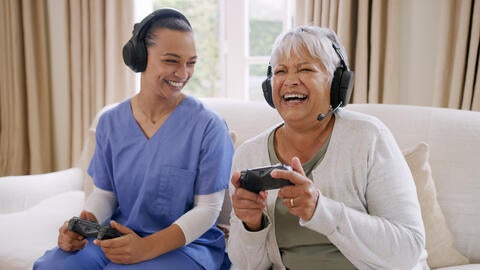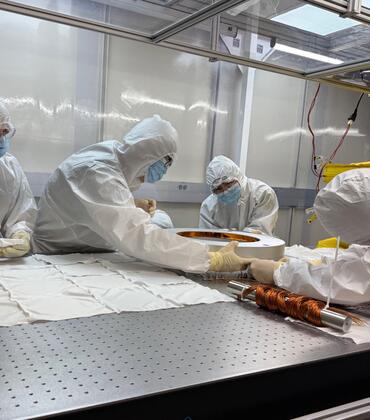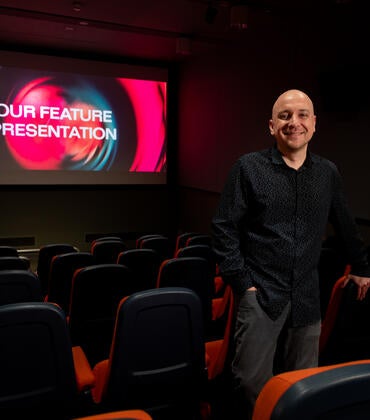
A $5 million NIH grant is adding an ‘extra life’ to Parkinson’s research, with patients playing video games during brain surgery to help researchers understand better how the brain regulates movement.
Vasileios Christopoulos, assistant professor of bioengineering at UC Riverside, is leading the five-year project whose goal is to take insights from these surgeries and apply them toward better, more individualized treatments for Parkinson’s patients.
Christopoulos will collaborate with colleagues at Cedars Sinai Medical Center, UT Southwestern Medical School, and the University of Iowa for the project.
“We will try to understand how our brain controls the actions we perform, how we make decisions between competing goals, how we stop moving, and how we switch actions,” Christopoulos said.
The brain network associated with action regulation is disrupted with Parkinson’s, causing slower movements, difficulty stopping a movement, freezing, or having trouble initiating a new action.
As the disease progresses, dopamine-producing cells die. Dopamine is a neurotransmitter, responsible for feelings of pleasure which in turn fuel motivation. A first step in treatment is often L-Dopa, a drug meant to replace lost dopamine.
When L-Dopa or similar medications stop working, deep-brain stimulation is often a last-ditch treatment. Electrodes are implanted to stimulate an area of the brain called the sub-thalamic nucleus or STN, which is involved with Tourette’s syndrome and obsessive-compulsive disorder as well as Parkinson’s.
“When a bus is coming and you want to stop crossing the street, the STN is involved. It’s the brake you have in your brain when you want to stop what you’re doing,” Christopoulos said. “In Parkinson’s we know this area is hyperactive. For them, every action is like driving a car with their foot on the brakes.”
For this project, around 200 patients will be awake while the electrodes are implanted. They’ll play a video game with a joystick, before, during and after surgery, allowing the research team to see the effectiveness of the treatment in real time.
The patients’ behavioral and neurological data will also help Christopoulos build a large-scale mathematical model of the brain, so that theories about its function can be tested.
Parkinson’s is the second most common neurodegenerative disease after Alzheimer’s. Approximately 500,000 Americans are diagnosed with it, and its prevalence has doubled in the last 25 years, particularly for patients under age 50.
This grant falls under the National Institutes of Health’s Brain Research Through Advancing Innovative Neurotechnologies, or BRAIN initiative, which aims to revolutionize our understanding of the human brain and accelerate the development of innovative technologies.
“As an outcome of this project, we hope to optimize treatments and make them patient specific,” Christopoulos said. “We know Parkinson’s is a terminal disease, but we want to give people a better quality of life, and a longer life.”





